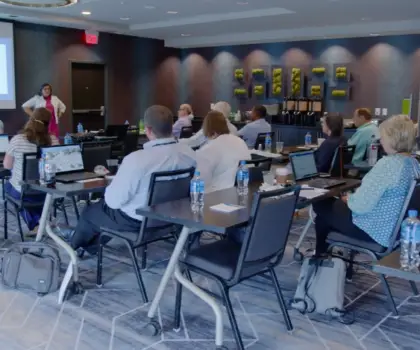The Premier Credit Trade Association in the Home Furnishings and Accessories Supply Industry
Trade Data on Over 35,000 Home Furnishings Retailers and Designers
Providing the top suppliers and factoring firms in the home furnishings and accessories supply industry with vital industry-specific tools to make informed credit decisions, manage their exposure, and collect debt
Credit Interchange Reports
Our Credit Interchange Reports list the historical trade information from fellow FMCA members on over 35,000 dealers and designers
Credit Interchange Reports
Easily link up with all reporting members on a common account via email at no extra cost
Interchange Meetings, Networking, and Education
Regular credit interchange meetings & educational opportunities.
Interchange Meetings, Networking, and Education
The interchange meetings consist of each member submitting dealers for discussion.
Who We Are
FMCA is a Member owned 63 year old association of credit departments/credit managers from many of the top manufacturing/importing suppliers, as well as several of the top A/R factoring companies, in the home furnishings and accessories industry.
The Premier Credit Trade Association in the Home Furnishings and Accessories Supply Industry
Join 70+ home furnishings and accessories industry credit departments that gain unique insight and education to make better credit decisions!
Our Company History
Furniture Manufacturers Credit Association (FMCA) is a member-owned association composed of the top home furnishings and accessories suppliers. Established in 1961 by Henry Wallace Taylor, FMCA grew out of a recognized need for the exchange of credit information directly rather than through the services of third party organizations. Throughout the decades, FMCA has evolved into a leader in the home furnishings and accessories credit industry. FMCA is a comprehensive resource for credit professionals. Today, FMCA captures the essence of what it means to be part of a professional community. This means not only valuable tools but a community of like-minded professionals at your fingertips to help members be more successful.






What We Do
Our Members submit monthly accounts receivable trade data files to FMCA which are processed and loaded into our databases to provide vital historical trade history on furniture retail dealers and designers to our members in the form of our FMCA Credit Interchange Reports. We are also a collection agency of which is owned by our members. Along with the tools of Credit Interchange Reporting and Claims & Collections, FMCA’s “Member Helping Member” foundation is further enhanced with our Interchange Meetings, Community Networking, and Education opportunities which help to form and nourish relationships with industry peers, to keep members informed of the latest industry news and events, as well as facilitating the exchange of essential information.
Our Officers and Board of Directors

Events
2025 Education, Shareholders, and Credit Interchange Meetings
Thursday, May 15, 2025 Greensboro-High Point Marriott Airport (Virtual Attendance Available) Shareholders', Education, and Credit Interchange Meetings One Day Meeting
July 2025 Credit Interchange Meeting
Thursday, July 10, 2025 Roundtable Discussion of Retailers and Designers (Conducted in Accordance with Federal Antitrust Guidelines)
2025 Fall Education Conference
Contact Us
Office Address
1840 Eastchester Drive Suite 202 High Point, NC 27265
Call Us
(336) 889-2877













